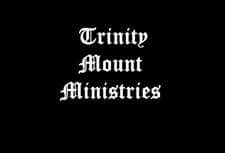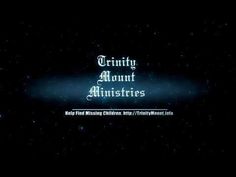Produced by Chris Young Ritzen
According to the FBI, sex trafficking of children in this country has become a nationwide problem. And traffickers target troubled girls with low self-esteem -- girls like Alyssa Beck.
Beck was just a naïve 15 year old living in Jacksonville, Florida, when she found herself trapped in a sex trafficker's web. She would be in and out of their trap for almost five years.
CBS News correspondent Michelle Miller has been following Beck's story and the horrific world of sex trafficking of kids. It could happen to anyone – that's why actor and activist Ashton Kutcher has taken on this cause to save other young victims.
ALYSSA'S STORY
Alyssa Beck: I was searching for something. …But I didn't know what I was searching for. …I just wanted to be free. …I don't remember being popular when I was growing up. But I always got good grades. …I was really nice and sweet as a child. …But we had problems at home. … There has to be something else. Something better than living like this. …I'm just gonna run away.
Heather Beck | Alyssa's mom: The first couple of times Alyssa ran away, you know, we would get in the car, we would drive around. …I have no idea where she was. I was terrified. Is she in the dumpster or is she in that trash bag on the side of the road and will I ever see her again?
Alyssa Beck: I was a naïve 15-year-old.
Alyssa Beck: I didn't know the streets, so I didn't know the bad things that came with it.
Alyssa Beck: I just thought that it would be fun, you know, maybe party, maybe drink. …But I never would of been prepared for what really happened.
Lawanda Ravoira | President, Delores Barr Weaver Policy Center: I would describe Alyssa when I first met her as afraid. As cautious. …Her experiences were some of the most violent, the most traumatic, that I've seen.
Alyssa Beck: My every day life was laying there, naked, beaten and allowing guys to come and pay 10, 20 dollars to do whatever they wanted to me.
Alyssa Beck: I didn't know the streets, so I didn't know the bad things that came with it.
Alyssa Beck: I just thought that it would be fun, you know, maybe party, maybe drink. …But I never would of been prepared for what really happened.
Lawanda Ravoira | President, Delores Barr Weaver Policy Center: I would describe Alyssa when I first met her as afraid. As cautious. …Her experiences were some of the most violent, the most traumatic, that I've seen.
Alyssa Beck: My every day life was laying there, naked, beaten and allowing guys to come and pay 10, 20 dollars to do whatever they wanted to me.
Mac Heavener| Prosecutor: She was being forced to do it.
Mac Heavener: We are talking about buying and selling children for sex acts.
Michelle Miller: How many men?
Shannon Schott | Juvenile justice expert and lawyer: Fifty. …Over the course of two weeks.
Heather Beck: It never crossed my mind in my wildest dreams that my child was involved in human trafficking.
Ashton Kutcher testifies at a Senate Foreign Relations Committee hearing on modern slavery, Feb. 15, 2017. "I've seen things that no person should ever see," he said.
Sen. Bob Corker | R-Tenn: Our first witness today is Mr. Ashton Kutcher.
Ashton Kutcher [ to Congress]: As part of my anti-trafficking work, I've met victims in Russia, in India, victims in New York and New Jersey and all across our country. …I've been on FBI raids where I've seen things that no person should ever see.
Kutcher gives emotional testimony at hearing on ending modern day slavery
Ashton Kutcher: I have a hard time talking about this issue without being emotional.
Michelle Miller: Why this cause?
Ashton Kutcher: I was just so appalled … If you don't do something about it, then who are you?
Ashton Kutcher: It can happen to anyone … Traffickers prey on people and they know exactly what's gonna turn their trigger.


















